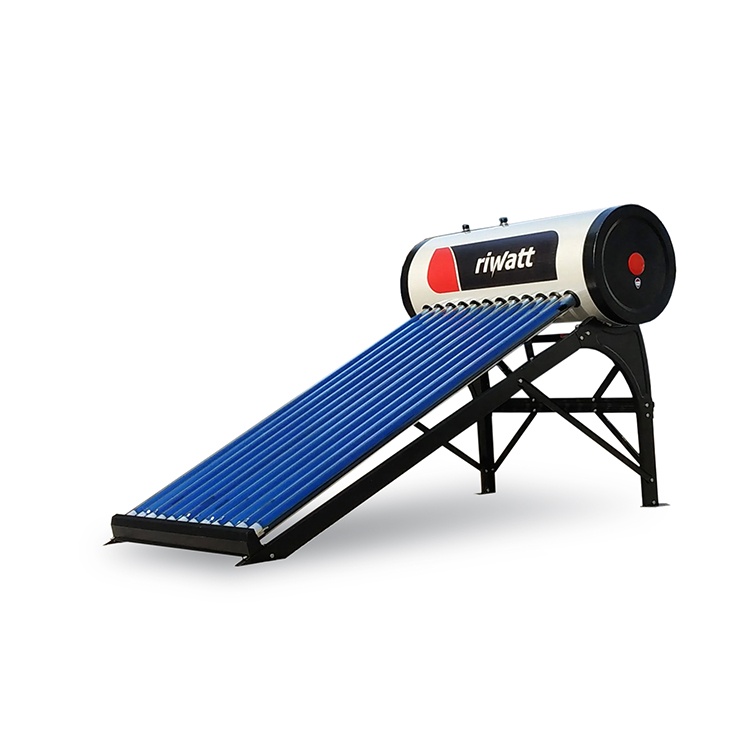
网站公告
more- Online Onlin... 25-04-22 02:18
- Online Onlin... 25-04-22 02:17
- Geico Insura... 25-04-22 02:15
- The Top 10 W... 25-04-22 02:10
Climate-Friendly Water Heating Options
JurgenBeveridge911 2025.04.20 01:05 查看 : 2
The implementation of solar water heaters has become a vital solution for water conservation worldwide. As the world grapples with the consequences of depleting water resources, finding alternative and sustainable methods for heating water has become a pressing concern.
Solar water heaters work on the principle of harnessing the sun's energy to heat water for household use. This technology is particularly relevant for areas that receive abundant sunlight throughout the year. These systems consist of a solar collector, a storage tank, and a grid-connected system. The solar collector converts sunlight into heat, which is transferred to the storage tank. The storage tank, typically made of high-quality materials such as durable storage containers, stores the heated water for later use.
There are various types of solar water heaters available, including continuous flow heaters. Continuous flow heaters use a heat exchanger to transfer the solar energy to the storage tank, while batch heaters store the heated water in a separate system. The choice of solar water heater largely depends on the installer's expertise, available space, and local climate conditions.
One of the significant advantages of solar water heaters is their ability to reduce greenhouse gas emissions. By utilizing renewable energy from sunlight, households can significantly decrease their reliance on fossil fuels. Furthermore, solar water heaters require little to no maintenance, as they have no moving parts and are designed to withstand harsh weather conditions.
However, the initial investment cost for solar water heaters can be substantial, making them inaccessible to many low-income households. Nonetheless, governments and organizations worldwide have implemented various incentives to encourage the adoption of solar water heaters. Many governments offer incentives for the installation of solar water heaters, making them more affordable for households.
To effectively implement solar water heaters on a larger scale, it is essential to invest in efficiency upgrades. Improving the efficiency and durability of solar water heaters can make them more competitive with conventional systems. Additionally, governments and organizations should provide education and training to ensure a smooth transition to solar water heaters.
In conclusion, the implementation of solar water heaters is a vital step towards achieving water conservation. With the increasing awareness of the importance of ecofriendly practices, it is essential to encourage the adoption of solar water heaters worldwide. By promoting research and development, providing incentives, and raising awareness, we can create a more responsible future for generations to come.
Solar water heaters work on the principle of harnessing the sun's energy to heat water for household use. This technology is particularly relevant for areas that receive abundant sunlight throughout the year. These systems consist of a solar collector, a storage tank, and a grid-connected system. The solar collector converts sunlight into heat, which is transferred to the storage tank. The storage tank, typically made of high-quality materials such as durable storage containers, stores the heated water for later use.
There are various types of solar water heaters available, including continuous flow heaters. Continuous flow heaters use a heat exchanger to transfer the solar energy to the storage tank, while batch heaters store the heated water in a separate system. The choice of solar water heater largely depends on the installer's expertise, available space, and local climate conditions.
One of the significant advantages of solar water heaters is their ability to reduce greenhouse gas emissions. By utilizing renewable energy from sunlight, households can significantly decrease their reliance on fossil fuels. Furthermore, solar water heaters require little to no maintenance, as they have no moving parts and are designed to withstand harsh weather conditions.
However, the initial investment cost for solar water heaters can be substantial, making them inaccessible to many low-income households. Nonetheless, governments and organizations worldwide have implemented various incentives to encourage the adoption of solar water heaters. Many governments offer incentives for the installation of solar water heaters, making them more affordable for households.
To effectively implement solar water heaters on a larger scale, it is essential to invest in efficiency upgrades. Improving the efficiency and durability of solar water heaters can make them more competitive with conventional systems. Additionally, governments and organizations should provide education and training to ensure a smooth transition to solar water heaters.
In conclusion, the implementation of solar water heaters is a vital step towards achieving water conservation. With the increasing awareness of the importance of ecofriendly practices, it is essential to encourage the adoption of solar water heaters worldwide. By promoting research and development, providing incentives, and raising awareness, we can create a more responsible future for generations to come.

?? 0
Copyright © youlimart.com All Rights Reserved.鲁ICP备18045292号-2 鲁公网安备 37021402000770号

